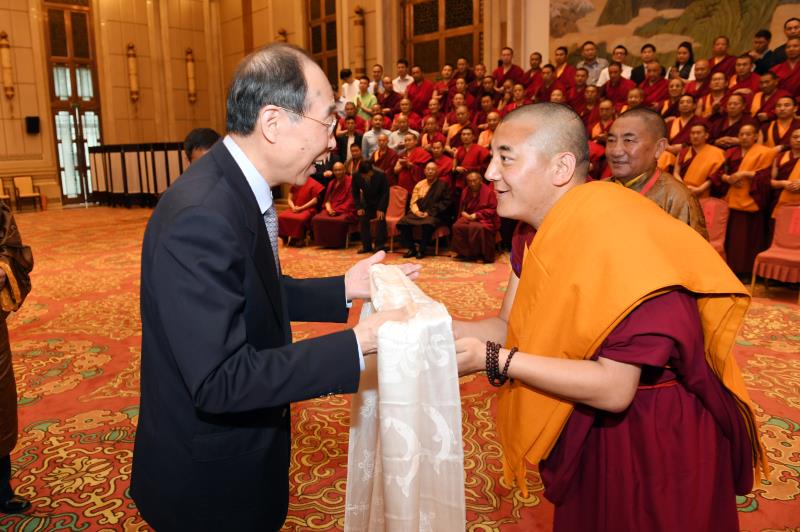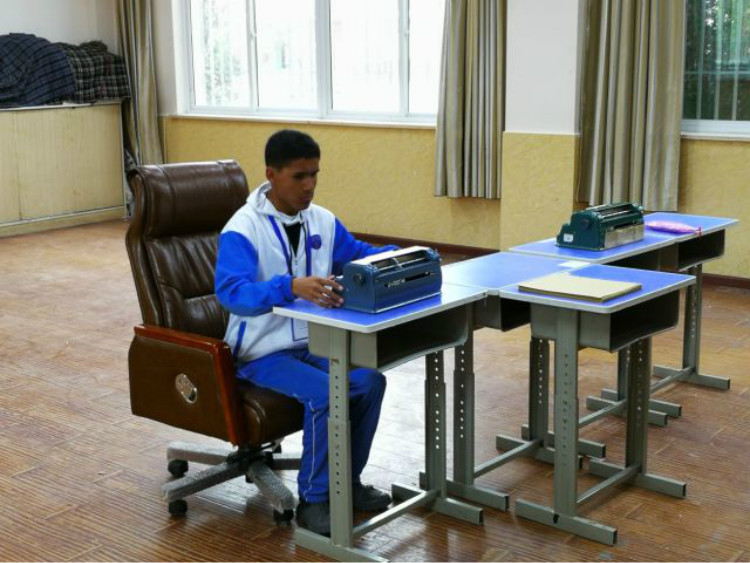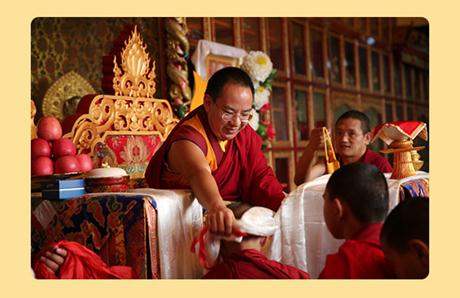U.S. is not the “standard setter” of religious freedom: expert
“In recent years, the United States has published the so-called ‘Annual Report on International Religious Freedom’, and each year they have made irresponsible remarks on religious freedom in China. In fact, the nature of the agency that issues the report and the consistent attitude from the U.S. on China’s Tibet-related work confirm that the report does not have any positive words about China,” Dukar Tsering, researcher and deputy director of the Institute of Religion at the China Tibetology Research Center, said recently while talking about the so-called “2017 Report on International Religious Freedom”.
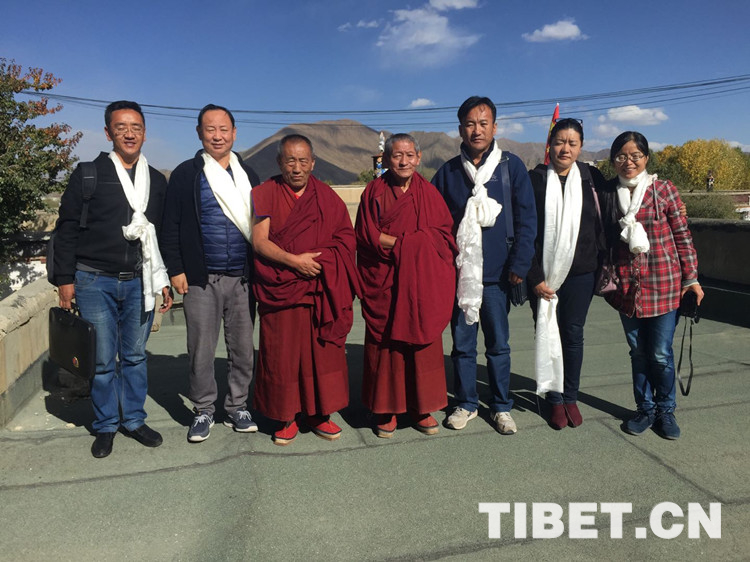
Dukar Tsering(second from left)made a survey in Tibetan-inhabited area.
Self-titled “standard setter” of religious freedom
“Where are the religions mentioned in the report? Where are the monasteries? Where are the monks? Where are the religious followers? All are in China. With regards to religious freedom in China, the U.S. does not use real data or examples, but rather collects some information provided by separatist forces abroad. A considerable number of these separatist forces have never been to China. Whether this kind of report is reliable and authoritative is already very clear.” Dukar Tsering said.
“What is religious freedom? Is there a definition for it? Who has the right to define it? The world does not have a uniform standard. Is the United States’ so-called Commission on International Religious Freedom or the offices of the U.S. State Department the one who defines this rule and standard? No.” Dukar Tsering believes that with regards to freedom of religious belief, China should define its own standard. “In terms of Tibetan Buddhism, if religious freedom refers to the theocratic system in Tibet before democratic reforms, then we really cannot go back to that kind of ‘freedom’. The reason why it was necessary to overthrow the feudal serfdom system of theocracy was because at that time, Tibetan people’s right to survival and development was in the hands of monasteries and some religious leaders. There was no social freedom, let alone personal freedom. If the U.S. believes that we should return to that era in order to have religious freedom, then there is nothing to discuss.”
“China’s policy of freedom of religious belief makes sense anywhere in the world”
“Our policy of freedom of religious belief makes sense not only in China, but anywhere in the world,” Dukar Tsering said. “Policies that allow the people to be in charge of their own affairs can maximize the benefits for religious followers, protect normal religious activities, and fulfill the needs of ordinary religious followers.”
Dukar Tsering believes that China has confidence in its policies related to freedom of religious belief, for the policies are rooted in several aspects of assurances. The first is legal protection. The system of regional autonomy for ethnic-minorities and policies for freedom of religious belief are enshrined in the Constitution, and these two rights and obligations are guaranteed. In terms of religious policies, “When the Communist Party of China established a revolutionary base, especially during the time of the Long March, all ethnic minority regions were able to formulate and implement policies for the freedom of religious belief, protect normal religious activity, and protect monasteries and monks. These were not just words, but have been done for more than 80 years.” At the same time, because religion is so important to believers, the Chinese government has spent a lot of manpower, material resources, and financial resources on specifically formulating laws and regulations to protect and regulate religious activities, such as the “Regulations on the Administration of Religious Affairs” and the “Methods of Management for the Reincarnation of Tulkus in Tibetan Buddhism”, etc. These rules and regulations conform to legal requirements and to the strategy of governing the country. They have a theoretical basis and are continuously reviewed in practice.
Your Comment
Name E-mailRelated News
-
-
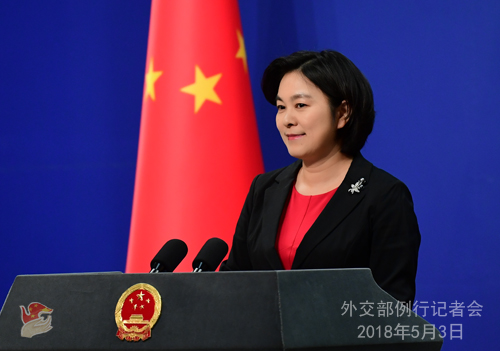
-
U.S. falsifies report on religious freedom
The United States recently released its 2018 Report on Religious Freedom, and in it, they continue to make unwarranted charges against other countries’ domestic affairs. Once again, the report lists China as a “special attention country”, criticizing the normal order of religion in the Xinjiang Uighur Autonomous Region and Tibet Autonomous Region.
-
-
-
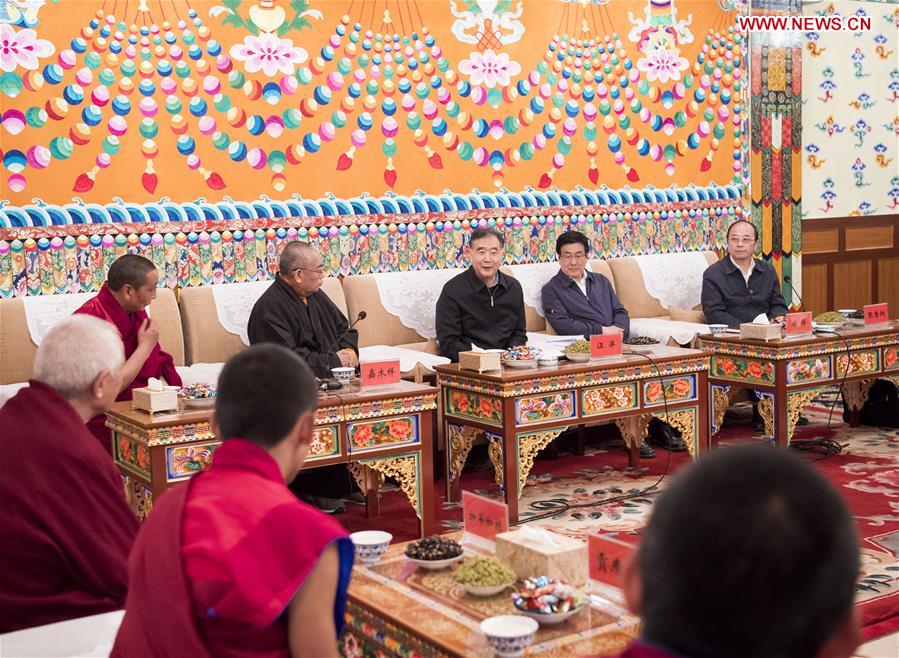
-
Senior CPC official stresses ethnic, religious work in Tibetan areas
Senior Communist Party of China (CPC) leader Wang Yang has called for better work regarding ethnic and religious affairs as well as poverty relief in the country's Tibetan areas.
-
-
-
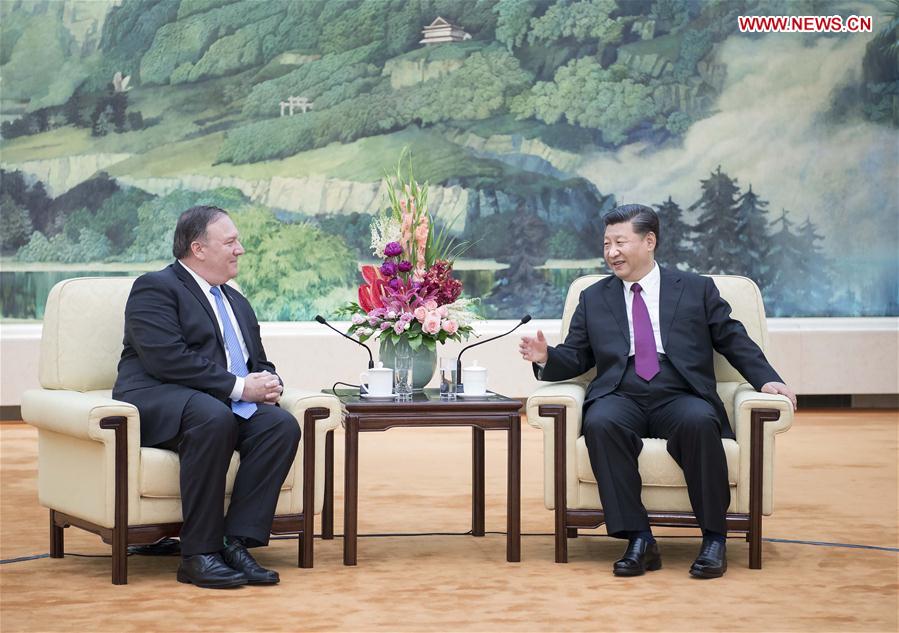
-
Chinese president meets U.S. Secretary of State
Chinese President Xi Jinping met with U.S. Secretary of State Mike Pompeo at the Great Hall of the People in Beijing Thursday.
-
-
-
Trump, Kim to meet at Capella Hotel on Singapore's Sentosa Island: White House
U.S. President Donald Trump and top leader of the Democratic People's Republic of Korea (DPRK) Kim Jong Un will meet at the Capella Hotel on Singapore's Sentosa Island, the White House said on Tuesday.
-
-
White House says Trump-Kim meeting scheduled for 9:00 a.m. on June 12
U.S. President Donald Trump and the top leader of the Democratic People's Republic of Korea (DPRK), Kim Jong Un, are scheduled to meet at 9:00 a.m. Singapore time on June 12, the White House said on Monday.




